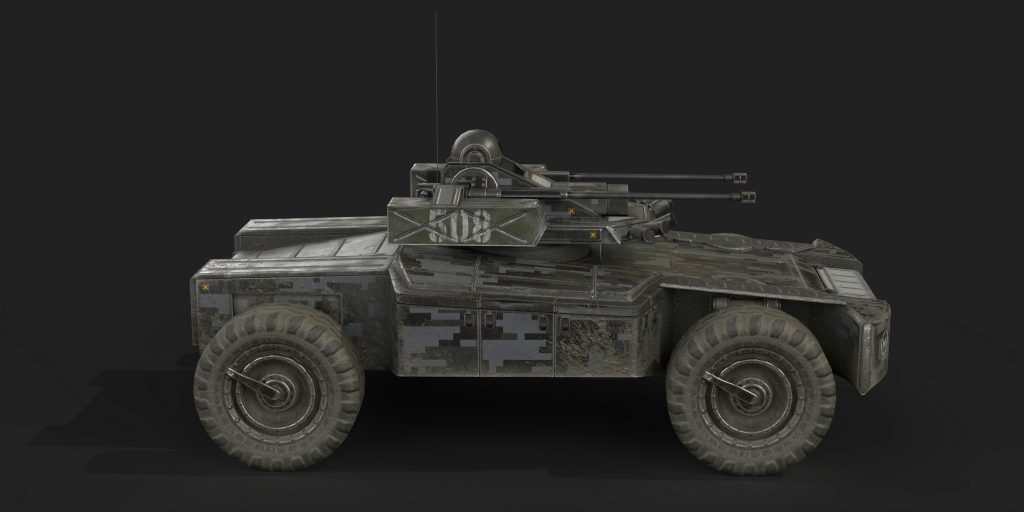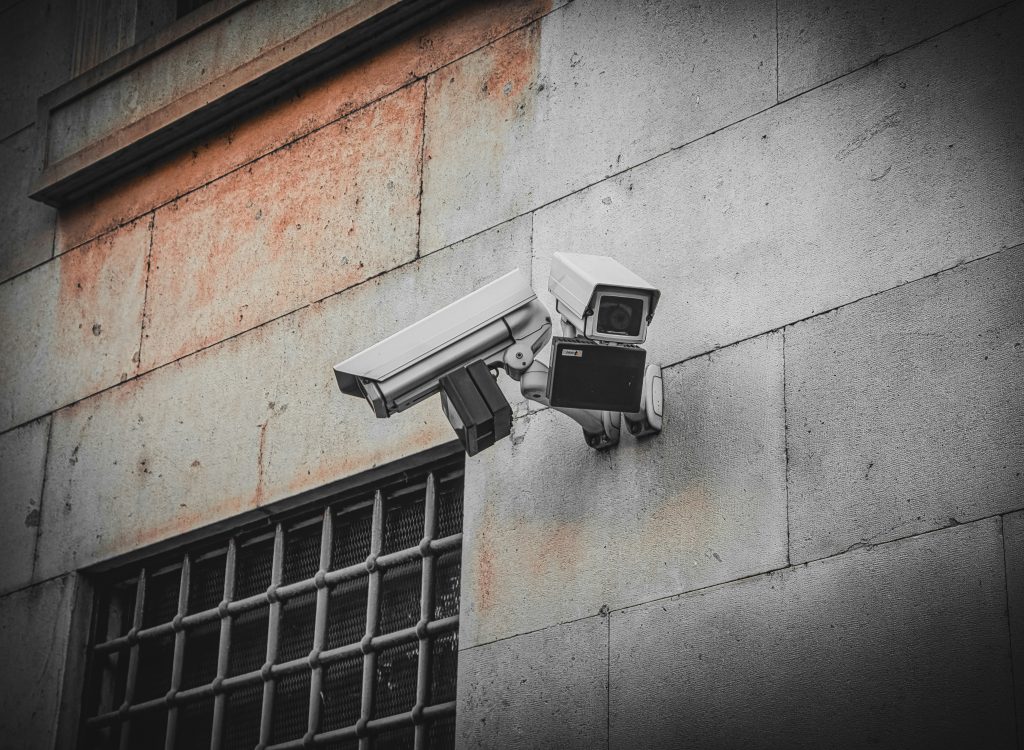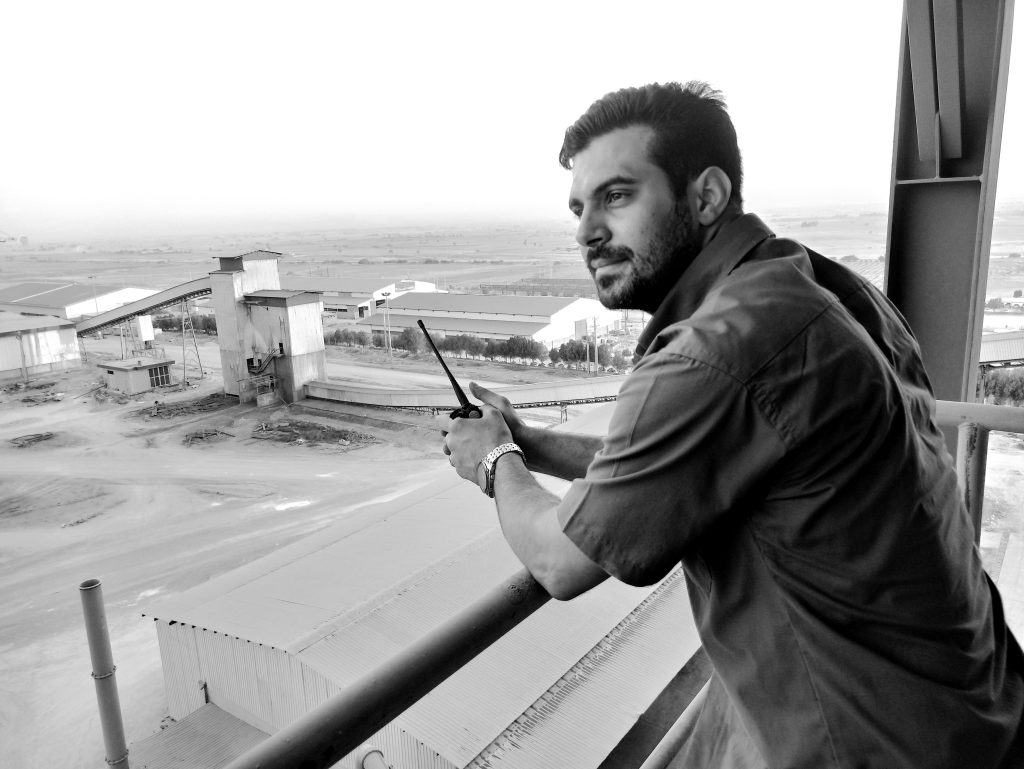Iran’s Unprecedented Missile Assault on Israel Escalates Tensions
In a dramatic escalation of hostilities in the Middle East, Iran launched an unprecedented barrage of over 180 ballistic missiles targeting Israel on October 1. This marked the largest single missile attack recorded against the nation, sending shockwaves through international communities and heightening fears of broader conflict. The assault was characterized by its scale and complexity, showcasing advanced weaponry beyond what was seen in previous engagements, particularly the strikes that occurred earlier in the year.
As air raid sirens wailed across Israeli cities, the country’s defenses, notably the Iron Dome, were activated to intercept the incoming missiles. The Israeli Defense Forces reported successful interceptions, yet the sheer volume of projectiles launched posed a significant challenge.
In the aftermath of the strike, Israeli officials issued stern warnings regarding the consequences of Iran’s actions, labeling the assault as a grave provocation. The Iranian government, however, framed the missile barrage as a retaliatory measure against what they described as attacks on their allies in the region. This reciprocal cycle of aggression raises alarms over the potential for escalating military engagements.
The situation has drawn attention from global leaders, with the White House emphasizing that any direct military aggression from Iran would result in severe repercussions. This statement reflects a growing concern among U.S. officials regarding Iran’s increasing assertiveness and its implications for regional stability.
Additionally, the conflict has seen ground engagements between Israeli forces and Hezbollah fighters, further complicating an already volatile situation. The interconnected nature of these conflicts highlights the potential for a wider war if diplomatic avenues are not pursued.
The international community is now watching closely as tensions rise, with calls for restraint on all sides. As the dust settles from this latest offensive, the need for a renewed dialogue and a strategic approach to peace in the region has never been more critical. The implications of this missile attack extend far beyond the immediate conflict, threatening to reshape alliances and provoke further military responses.
In light of these developments, analysts warn that the fragile balance in the Middle East could be tipped into a broader confrontation if decisive actions are not taken to de-escalate the situation. The possibility of further missile strikes looms large, and with it, the specter of war that could engulf the region in chaos.
The urgency of the situation calls for an international response to prevent further escalation and to seek a sustainable resolution to the hostilities that have plagued the region for decades. As Iran continues to assert its military capabilities, the world must grapple with the implications of this evolving conflict and the potential for widespread upheaval.
Tags: Ballistic missile, Ballistic Missiles, Iran, Israel, Military Conflict
Escalating Tensions: Israel’s Ground Incursion into Lebanon Amid Iranian Missile Strikes
In a dramatic escalation of hostilities, the Israeli military has launched a significant ground incursion into southern Lebanon, coinciding with a barrage of missile attacks from Iran targeting Israeli territories. As air raid sirens blared across Israel, citizens rushed to bomb shelters, witnessing the ominous sight of missiles streaking through the night sky. This troubling development marks an alarming turn in the ongoing conflict, raising fears of a broader regional war involving two of the Middle East’s most formidable military powers.
The Iranian missile strikes are reportedly a response to Israel’s intensified military operations against Hezbollah, a militant group in Lebanon long supported by Tehran. In recent weeks, Israeli forces have engaged in what they describe as ‘limited incursions’ aimed at dismantling Hezbollah’s military capabilities, which have been a persistent threat to Israeli security. The Israeli military’s operations have drawn sharp condemnation from Iran, prompting Tehran to vow a retaliatory response.
Israeli officials have made it clear that a ‘significant retaliation’ is forthcoming, as the nation grapples with the implications of the Iranian attacks. Prime Minister Benjamin Netanyahu has asserted that Iran will ‘pay for’ its aggressive actions, signaling a commitment to defending Israel’s sovereignty at all costs. The strategic coordination between the U.S. military and the Israeli Defense Forces during these tensions highlights the international ramifications of the conflict, with the Pentagon closely monitoring the situation.
The current crisis is reminiscent of the monthlong war that erupted in July 2006, where Israeli forces found themselves entangled in fierce battles against Hezbollah, leading to substantial casualties on both sides. Experts warn that the ongoing military engagements could spiral into a wider conflict, particularly if Iran continues its missile assaults. As the situation continues to evolve, military analysts are closely watching the developments, assessing the potential for a broader confrontation in the already volatile region.
The implications of these events extend beyond military might; they raise critical questions about regional stability and the potential for civilian casualties amid the escalating violence. The humanitarian impact of such conflicts often bears heavy consequences, prompting calls for urgent diplomatic interventions to de-escalate tensions.
As the Israeli military prepares for further operations, it remains to be seen how Iran will respond and whether this latest round of hostilities will lead to an all-out war in the Middle East. The international community watches with bated breath, as the fragile balance of power hangs in the balance, and the specter of a larger conflict looms ever closer. With both nations bracing for a protracted struggle, the stakes could not be higher, and the quest for peace seems more elusive than ever.
Tags: Hezbollah, Iran, Israel, Israel news, Middle East, Military Operations
Tensions Rise as Iran Prepares for Potential Missile Strike Against Israel
In a dramatic escalation of tensions in the Middle East, reports indicate that Iran may be on the brink of launching a ballistic missile attack against Israel. This comes in the wake of a deadly Israeli airstrike that killed Hezbollah leader Hassan Nasrallah in Beirut, further fueling the already volatile situation. As Iranians rally in support of Hezbollah, holding pictures of the fallen leader, the specter of conflict looms larger. U.S. intelligence suggests that the scale of the potential strike could be unprecedented, raising alarms in Washington and Jerusalem alike.
Officials have warned that a direct military attack from Iran would have severe repercussions for the nation. The stakes are particularly high given that Iran has previously launched missile strikes at Israel, albeit in a lower intensity. If carried out, this would mark a significant escalation in hostilities and could prompt a robust response from both Israel and the U.S. The region is already on edge, with Israeli forces executing a ground incursion into Lebanon targeting Hezbollah militants.
In light of these developments, the U.S. is reportedly ramping up its support for Israel, preparing defensive measures to counter any potential Iranian aggression. The situation underscores the delicate balance of power in the region, as any miscalculation could lead to widespread conflict. The international community watches closely, aware that the consequences of an Iranian missile strike could ripple far beyond the borders of Israel, impacting global stability.
As the situation unfolds, the atmosphere is charged with uncertainty. Iranian leaders have made bold statements in the past, but the reality of a direct confrontation with Israel—and the U.S.—could have dire consequences for Iran, potentially isolating it further on the world stage.
The geopolitical chess game continues, with both sides preparing for the worst while hoping for a resolution that has so far eluded the region. The coming days could be crucial in determining the trajectory of this conflict and its implications for the Middle East and beyond. Emphasis on diplomatic channels and dialogue is essential, as the world holds its breath in anticipation of the next move in this high-stakes situation.
Tags: Hezbollah, Iran, Israel, Middle East Tensions, Missile Strike
Iran Stands Firm on Retaliation Plans Against Israel Amid Rising Tensions
In a significant escalation of rhetoric, Iran has firmly rejected calls from three European nations urging restraint in the face of heightened tensions following the assassination of Hamas leader Ismail Haniyeh. The Iranian government, led by Supreme Leader Ayatollah Ali Khamenei, has publicly vowed to retaliate against Israel, blaming the country for Haniyeh’s death in Tehran. This declaration has sparked fears of an imminent attack on Israeli territory.
The backdrop of this situation is fraught with complexity. The assassination of Haniyeh, a prominent figure within Hamas, has been perceived in Tehran as a direct affront, prompting a swift and aggressive response from Iranian leadership. Despite the calls from Western powers, including the United Kingdom, for Iran to exercise caution and avoid further escalation, the Iranian officials remain resolute in their stance. They have indicated that any retaliatory measures are imminent, with assessments suggesting that a strike could occur as early as this week.
The geopolitical implications of this potential conflict are profound. The United States has expressed concern over Iran’s intentions, cautioning that the situation could spiral out of control, further destabilizing an already volatile region. The assassinations, counterattacks, and subsequent threats highlight the precarious balance of power in the Middle East, where alliances and enmities shift rapidly.
Amidst these tensions, there are glimmers of hope for diplomatic negotiations. Reports suggest that discussions are underway regarding a potential hostage release and a ceasefire deal in Gaza, which could temporarily delay Iranian military actions. However, the effectiveness of these negotiations remains uncertain, as the Iranian leadership appears unwavering in its demand for retribution.
As the world watches this unfolding drama, the stakes are incredibly high. The possibility of direct military conflict between Iran and Israel could have catastrophic consequences, not only for the two nations involved but also for regional stability and global security. Analysts warn that any miscalculation could ignite a broader conflict that involves multiple countries in the region, exacerbating an already dire humanitarian situation in Gaza.
The Iranian response is emblematic of a broader cycle of violence that has characterized relations between Israel and its neighbors for decades. The dynamics of this conflict are further complicated by the presence of various militant groups, shifting alliances, and the interests of global powers in the region. As tensions escalate, it is crucial for international actors to engage in meaningful dialogue to prevent a resurgence of hostilities that could lead to devastating repercussions.
As this situation continues to evolve, the international community is urged to take proactive measures to de-escalate tensions. The stakes are higher than ever, and the potential for conflict looms large. With both sides preparing for potential military action, the question remains: will diplomacy prevail, or are we on the brink of a new chapter in the ongoing saga of Middle Eastern conflict? Only time will tell as the world holds its breath, waiting for the next move in this intricate geopolitical chess game.
Tags: Geopolitics, Hamas, Iran, Iran attack Israel Israeli, Iran attacks Israel, Israel, Retaliation
Iran Promises Retaliation Against Israel Following Assassination of Hamas Leader
In a dramatic escalation of tensions in the Middle East, Iran has firmly declared its intention to retaliate against Israel for the assassination of Hamas’ political leader, Ismail Haniyeh, which occurred in Tehran last week. Iranian officials have made it clear that this event will not go unanswered, with President Masoud Pezeshkian stating unequivocally that Tehran will ‘definitely’ respond to what they perceive as an aggressive act by Israel.
This incident has sent shockwaves through the region, as both Hamas and Iranian authorities hold Israel accountable for the killing. The situation is particularly precarious, with analysts warning that the threat of an Iran-Israel war looms larger than before. The dynamics have shifted since Iran’s first direct attack on Israel earlier this year, suggesting a potentially more volatile environment in which both nations are now operating.
The assassination has heightened fears of a broader conflict, and Israeli Prime Minister Benjamin Netanyahu has convened his security cabinet to discuss possible counterstrikes. The atmosphere in Israel is tense, with citizens acutely aware of the risks that this retaliation might entail. Many are left watching and waiting, bracing for a response that could further destabilize an already fraught region.
Recent statements from Iranian officials have underscored the seriousness of their intentions. They have issued warnings that the response will come at a time and place of their choosing, with military analysts suggesting that Iran has a range of options at its disposal. The last two weeks have seen an unprecedented escalation of events, raising alarms among security experts about the potential for a major regional conflict that could draw in various factions and escalate beyond the control of either nation.
As tensions mount, the international community watches closely, aware that any miscalculation could lead to a broader conflagration. Iran’s vow to retaliate signals a pivotal moment in Middle Eastern geopolitics, one that could redefine alliances and hostilities in the region. The stakes are undeniably high, and the potential repercussions of this conflict could resonate far beyond the immediate actors involved. The coming days and weeks will be critical in determining whether diplomatic efforts will prevail or if the cycle of violence will continue unabated.
In summary, the assassination of Ismail Haniyeh has sparked a significant response from Iran, which has vowed to retaliate against Israel, raising the specter of a wider conflict in the region. As both sides prepare for possible escalations, the world holds its breath, hoping for a resolution to this dangerous standoff.
Tags: Hamas, Iran, Iran retaliation Israel, Israel, Middle East Conflict, Retaliation
Iran Vows Retaliation: Rising Tensions with Israel as Assassination Sparks Threats of War
In a dramatic escalation of tensions in the Middle East, Iran has publicly vowed to retaliate against Israel following the assassination of Hamas leader Ismail Haniyeh in Tehran last week. This incident has sent shockwaves through the region, as both nations brace for potential conflict. Reports indicate that Iran is preparing for a significant response, which could involve coordinated attacks alongside Hezbollah, its ally in Lebanon. Israeli citizens are on high alert, anticipating possible strikes from Iranian forces. The situation is further complicated by the fact that Iran’s military capabilities have evolved since its last direct assault on Israel in April, when it launched nearly 350 drones and missiles in a failed attempt to breach Israeli defenses. Experts suggest that the current climate is markedly different, with Iran seemingly more emboldened and willing to leverage its military assets. As international observers watch closely, the dynamics between moderate Sunni states and their interest in countering Iran’s influence are also in play. While these nations may seek to weaken Iran, the possibility of forming a lasting coalition with Israel remains uncertain. The specter of war looms large over the region as diplomatic efforts struggle to keep pace with the rapidly escalating threats. The implications of such a conflict could extend beyond the immediate parties involved, potentially drawing in global powers and destabilizing the entire Middle East. As both sides prepare for what could be a pivotal moment in their ongoing hostilities, the world waits with bated breath for the next move in this high-stakes game of geopolitics.
Tags: Hamas, Hezbollah, Iran, Iran attack Israel Israeli, Israel, Middle East
Escalating Tensions Between Iran and Israel: A New Era of Conflict?
In a dramatic turn of events, the ongoing tensions between Iran and Israel have escalated, raising concerns of potential conflict in the region. Recent developments include the assassination of prominent Hamas leader Ismail Haniyeh in Tehran and Hezbollah figure Fuad Shukr in Beirut, leading to heightened fears of retaliation from Iran and its allied militias. The situation has caught the attention of international leaders, including U.S. President Biden, who is closely monitoring the developments and preparing for any necessary support for Israel should it come under attack.
Moreover, the U.S. Department of Justice has intervened, charging a Pakistani national with alleged ties to Iran for a foiled plot to assassinate a U.S. politician. This incident highlights the growing global concern over Iran’s influence and its willingness to engage in political violence abroad. The Pakistani suspect remains in federal custody while investigations continue, emphasizing the seriousness of the threat that Iran poses beyond its borders.
As tensions simmer, Russian President Vladimir Putin has reached out to Iran’s Supreme Leader Ayatollah Ali Khamenei, urging restraint in response to Israel’s suspected actions. This diplomatic intervention underscores the complexities of the Middle Eastern geopolitical landscape, where alliances and rivalries can shift rapidly.
Analysts suggest that the nature of the conflict between Iran and Israel has transformed significantly since the first direct attacks earlier this year. The current geopolitical climate suggests that both parties are on edge, with Iran’s regional militias poised for any potential retaliation. The assassination of high-profile figures within the Iranian-supported factions has prompted discussions on whether a full-scale war is imminent or if a more calculated response is forthcoming.
While speculation abounds, the reality is that the situation remains fluid and unpredictable. The potential for conflict not only threatens the stability of the region but could also have far-reaching implications for international relations and security. As nations watch closely, the call for diplomacy becomes ever more urgent, as the consequences of escalation could lead to a devastating confrontation that neither side desires.
In this tense environment, many are left wondering how far Iran is willing to go in defending its interests and responding to perceived threats. The stakes are high, and the world is watching with bated breath as the situation continues to evolve. The interplay of military strategy, political maneuvering, and international diplomacy will determine the future of Iran-Israel relations and the broader stability of the Middle East.
As the global community grapples with the ramifications of these developments, one thing is clear: the time for dialogue is now, before the situation spirals into an uncontrollable conflict that could have dire consequences for all involved.
Tags: Hamas, Hezbollah, Iran, Iran-Israel Tensions, Israel, U.S. Politics
Iran Vows Retaliation Against Israel Following High-Profile Assassination
In a stark escalation of tensions in the Middle East, Iranian President Masoud Pezeshkian confirmed on Monday that Tehran would “definitely” retaliate against Israel for the assassination of Hamas leader Ismail Haniyeh. This declaration comes on the heels of a series of high-profile assassinations that have sent shockwaves throughout the region, compelling numerous factions to reassess their strategies and alliances.
The assassination of Haniyeh, carried out under suspicious circumstances widely attributed to Israeli operatives, has intensified fears of a broader conflict. Israeli leaders have openly acknowledged the possibility of an Iranian-led retaliation, heightening security measures and preparing military defenses amidst fears of an impending strike.
The situation is compounded by the scheduled meeting at the Organization of Islamic Cooperation (OIC) headquarters in Jeddah, Saudi Arabia, where discussions on a unified response to Israeli actions are expected to take center stage. As regional militias and allied factions express solidarity with Iran, the potential ramifications of a coordinated response could reshape the geopolitical landscape.
Analysts agree that Iran’s options for retaliation are limited, yet the Islamic Republic has vowed to exercise its “legitimate” right to defend itself. The Iranian leadership is under immense pressure to respond decisively to bolster its credibility both domestically and internationally. With regional tensions at a boiling point, the stakes have never been higher.
In the past week alone, the Middle East has been rocked by two significant assassinations. The first was of Fuad Shukr, a senior commander of Hezbollah, which has drawn the ire of Iranian officials and underscored the ongoing threats faced by allied groups in the region. These events have led to a call for unity among militant factions, as they navigate the complex web of alliances and enmities that characterize Middle Eastern politics.
As the clock ticks and the potential for retaliation looms, the international community watches closely, aware that any miscalculation could lead to widespread conflict. The specter of war hangs heavy in the air as Iran and Israel remain locked in a deadly game of brinkmanship, with both sides preparing for the worst.
In conclusion, the assassination of Haniyeh has not only reignited the longstanding animosity between Iran and Israel but has also mobilized various factions within the region to consider their positions in an increasingly volatile environment. With the OIC summit approaching and the threat of retaliation looming, the next steps taken by Iran and its allies will be critical in determining the future stability of the Middle East.
Tags: Hamas, Iran, Iran retaliation Israel, Israel, Middle East, Retaliation
Tensions Escalate as Iran Vows Retaliation Against Israel
In a rapidly unfolding situation that has captured global attention, Israel is preparing for potential military conflict as Iran and its ally Hezbollah threaten retaliation following the assassination of a prominent Hamas leader. The recent surge in hostilities has heightened fears of a broader regional conflict, with both sides gearing up for possible confrontation. Over the past few days, Iranian officials have made it clear that they hold Israel responsible for the death of the Hamas leader, signaling a commitment to avenge his assassination. This rhetoric has alarmed Israeli officials, prompting Prime Minister Benjamin Netanyahu to convene his security cabinet for urgent discussions on the nation’s defense strategy. As the prospect of an Iranian assault looms, Israel is bracing itself for what could be a prolonged military engagement. Reports indicate that intelligence assessments suggest a multi-day attack may be imminent, with Israel’s defense forces on high alert to respond to any threats from the north. The United States has also been closely monitoring the situation. Secretary of State Antony Blinken emphasized the importance of diplomatic measures to mitigate the escalation, urging G7 allies to exert pressure on Iran to avoid further violence. In a show of military readiness, the U.S. has redirected its naval assets to the region, reinforcing its commitment to regional stability amidst growing tensions. The potential for a military confrontation raises significant concerns about the humanitarian impact on civilians, particularly in Gaza, where the ongoing conflict has already taken a heavy toll. Observers warn that an all-out war involving Iran could shift the dynamics of the conflict dramatically, drawing in multiple actors and destabilizing the region further. As the situation unfolds, the eyes of the world remain fixed on the Middle East, with governments urging restraint and dialogue to prevent a catastrophic escalation of violence.
Tags: Conflict, Hamas, Hezbollah, Iran, Iran attack Israel, Israel, Retaliation
Escalating Tensions: Iran’s Response to Israel’s Actions Sparks Regional Concerns
In a region fraught with tension, the Iranian foreign ministry has issued a stark warning regarding its intentions towards Israel. The spokesperson emphasized that while Iran does not seek to escalate conflicts, it feels compelled to take necessary actions against Israel to maintain stability in the region. This declaration comes in the wake of increased military readiness from Israel amid fears of retaliatory attacks from Iran and its associated militant groups.
As Israel prepares for potential assaults, President Joe Biden is convening his national security team to address the burgeoning crisis. With Israeli Prime Minister Benjamin Netanyahu consulting with his security cabinet on strategies for counterstrikes, the atmosphere is charged with anticipation of conflict. The recent assassination of prominent Hamas leader Ismail Haniyeh in Tehran, which Iran attributes to Israeli forces, has further escalated hostilities, with Iranian officials vowing to respond decisively.
This week is pivotal for the region, as events unfold that could dictate the trajectory of the ongoing war in Gaza. Analysts suggest that Iran’s retaliation could significantly shift focus away from Gaza, drawing in various regional actors into a broader conflict. The United States has called for restraint among its G7 allies and is exerting diplomatic pressure to avert a wider war, aiming to limit attacks and responses from involved parties.
In a related development, a high-ranking Russian delegation is visiting Tehran, led by the Secretary of Russia’s National Security Council, Sergei Shoigu. This visit underscores the international implications of the current crisis, with Russia seeking to play a role in mediating tensions.
Meanwhile, a crisis meeting of Arab states is scheduled, where leaders are expected to discuss Iran’s actions and the overall regional response. Countries are urging Iran to exercise restraint, highlighting the precarious balance of power and the potential ramifications of unchecked aggression.
As the situation evolves, the international community watches closely, aware that the decisions made in the coming days could either lead to a de-escalation of tensions or plunge the region into deeper conflict. The stakes are high, and the implications of these events reach far beyond the immediate actors involved, affecting global stability and security.
Tags: Hamas, Iran, Iran Israel, Israel, Middle East, Tensions






